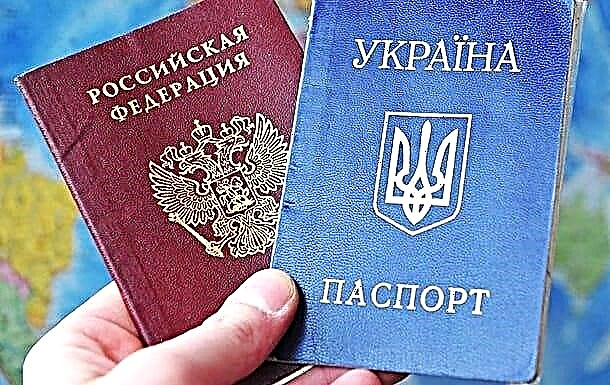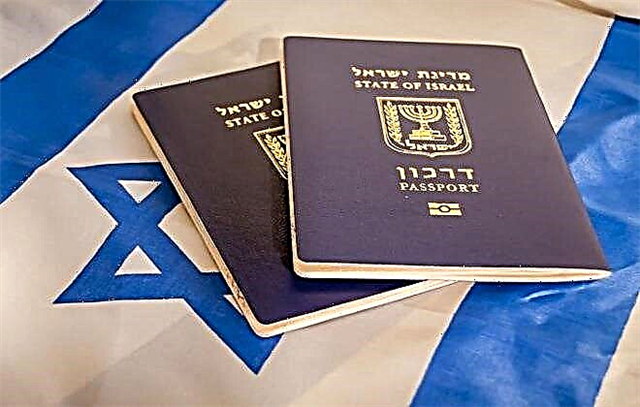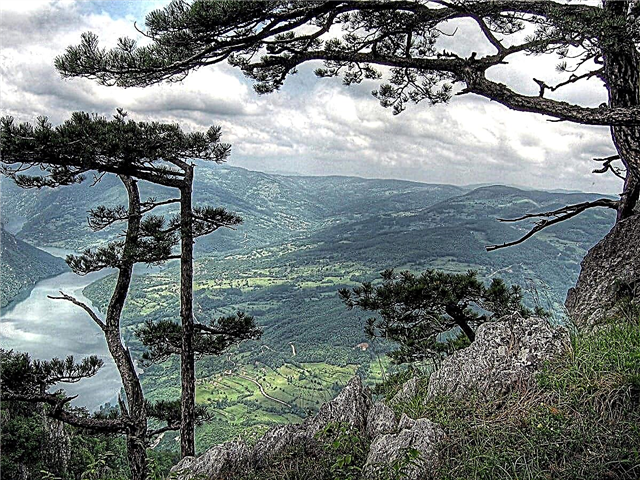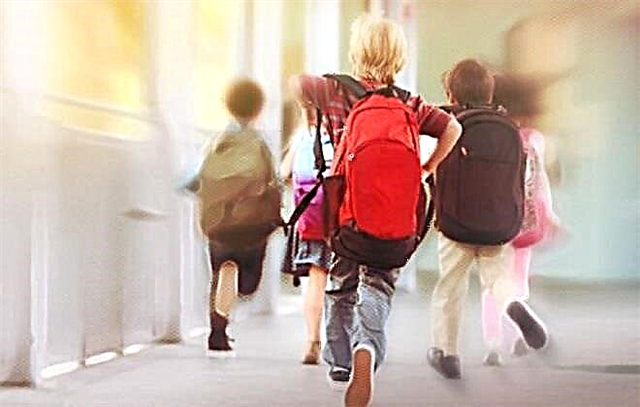Since the days of the USSR, Bulgaria has been a popular resort and for a long time was tacitly considered the "sixteenth republic of the Union". This state has become a full-fledged member of the EU, has a warm climate and developed infrastructure. The Bulgarian language is similar to Russian, and the mentality of the two peoples is also close. It is not surprising that more and more Russians are choosing this particular country as their new homeland. When planning a move with your family, it is worth finding out how schools in Bulgaria are arranged and whether it is possible to continue studying in Russian.
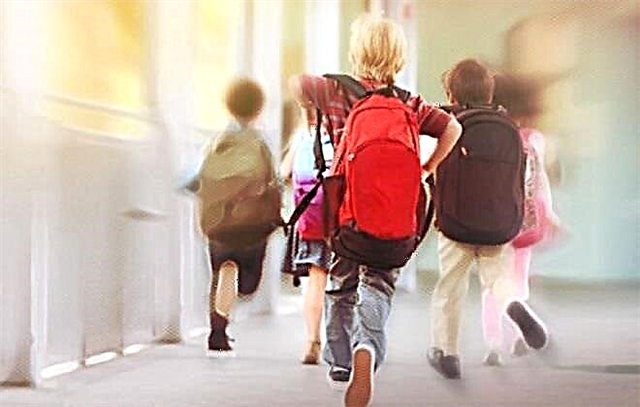
How education works in Bulgaria
As in most countries in the world, education in Bulgaria is divided into three levels:
- preschool (represented by kindergartens, which are ordinary (full or part-time), health and wellness and specialized (for children with special needs);
- school;
- higher (represented by universities that award bachelor's, master's or Ph.D. degrees to their graduates (corresponds to a candidate of sciences).
In addition, there are a number of technical colleges in the country, whose graduates receive a professional bachelor's degree.
In principle, the education system in Bulgaria is organized in the same way as in most other EU states. There are both private and state educational institutions in the country.
Most schools and universities have a general profile, but there are also specialized institutions: sports, linguistic, technical. At the same time, training in an educational institution of any category and specialization is carried out exclusively on a paid basis.
Talented children can apply for grants and scholarships from the governments of Bulgaria and the European Union.
School levels
The duration of study in Bulgarian schools is 12 years. This period is divided into three stages:
- Primary School;
- high school;
- old school.
Primary School
Primary education in Bulgaria lasts 4 years - from 1st to 4th grades inclusive. Children who have reached 6 years of age are admitted to the first grade. Children who have successfully mastered the program of these classes receive a diploma at a common holiday and move on to the next level.

In the country, there are both exclusively primary educational organizations and general education schools that are familiar to Russians, in which education takes place from grades 1 to 12 without transitions.
High school
At this level, which is known in the country as the progymnasium, Bulgarian children usually study from 5th to 8th grades. After finishing 7th or 8th grade, the child takes a state exam known as matura. It consists of two or three exams.
It is imperative to pass the Bulgarian language and literature, as well as one more main subject (physics, mathematics). If you wish, you can take any third subject.
The possibility of admission to senior and vocational schools depends on the results obtained when passing the "matura", each of which has the right to establish its own requirements for applicants.
So that parents can choose in advance a school in which they can continue their studies, as well as familiarize themselves with the required points and subjects, a specialized directory is published every year in Bulgaria.
For those who did not have time to make a decision, after the "matura" in one of the central schools of each city, a meeting is held, which is attended by representatives of all educational institutions in the region. There you can familiarize yourself with their terms and conditions and apply for admission of a child.
Old school
This stage in Bulgaria is called gymnasium. In most organizations, it lasts from eighth or ninth through twelfth grades. Professional and specialized schools with advanced study of languages, physics, mathematics, sports or other disciplines sometimes continue the educational process for another year, in the 13th grade.
Instead of a gymnasium after grades 7/8, you can enter technical schools and colleges. Training in them lasts from 2 to 3 years and often has a technical or professional bias. It is more difficult for graduates of such institutions to enter a university, but, having professional skills upon completion of the curriculum, they find work faster.
Organization of the educational process
Unlike the countries of the former USSR, in Bulgaria the academic year starts 2 weeks later, namely on September 15th. When collecting a child in the first grade, you should not give him a grandiose bouquet - one flower is enough.
The first four grades end the school year on May 31st. Students of the pro-gymnasium level go on summer holidays later - on June 15. High school students study the longest - until June 30. At the same time, even among the youngest grades, the year is divided not into quarters that are familiar to Russians, but into semesters characteristic of universities.
There are no winter holidays as such in the country - instead of them there is a Christmas weekend from January 1 to January 7.
There are 5 training days per week, with many institutions working in two shifts.
The duration of lessons at the initial level is 35 minutes, in the gymnasium and gymnasium - 45 minutes. The first shift for elementary grades starts at 8 am, for older children - at 7.30.
The country has adopted a six-point knowledge assessment system. In this case, it is allowed to set fractional ratings, such as 3.75 or 5.4. However, the current grades have little effect on anything other than motivation - the transfer between classes takes place according to the results of semester tests.
In general, a simplified version of the Bologna system operates in the country's schools: teachers do not try to "drive" knowledge into schoolchildren, but give them considerable freedom in mastering the material.
The curriculum of most subjects is similar in content to the Russian, but due to the larger number of classes, it is more stretched in time.
How to send a child to school
To enter a school of any level in Bulgaria, you will need the following documents:
- Application addressed to the director according to the sample, which will be provided on the spot.
- Child's medical record.
- Birth certificate and its copy.
- Certificate of the address of registration and residence of the child in Bulgaria.
- Grades completed and subjects studied, if any.
All Russian-language documents must be accompanied by a notarized translation into Bulgarian.
A certificate of the passed program from a Russian school must necessarily include a complete list of passed subjects and the number of hours of classes for each of them, as well as all the marks received by the child.
Regional education inspectors are responsible for drawing up such certificates and recalculating grades from Russian to Bulgarian for grades 1 through 7. Documents from 8th to 12th grades are drawn up in the office number 5 of the Ministry of Education of Bulgaria.

This certificate will be examined by the head of the organization and will determine which class the child will be admitted to. For example, after finishing the fourth grade in Russia, in Bulgaria he can be assigned to the fifth, sixth or even seventh grades, depending on the amount of acquired knowledge.
For each certificate of study, you need to pay a state fee, which is 10 levs (a little more than 5 €). The receipt of payment must be attached to the application for admission.
Bulgarian is used as the language of instruction in all public and most private institutions. From the second grade, absolutely all children begin to learn a second foreign language, which in most cases is English and only rarely French.
In the fifth grade, one more foreign language is added - most often Russian, sometimes German. If you want your child to continue to learn Russian, then you can write an application for studying it as a foreign language from the second or even first grade.
The cost of training depends on whether the school is private or public. On average, you will have to pay about 800 € per year for studying in the primary grades and the gymnasium. A year of study at a gymnasium will cost 900 €.
In addition to textbooks issued in libraries, the course of many disciplines involves the purchase of reference books and special notebooks. In some schools, the mandatory wearing of a uniform has been introduced, for which you will also have to pay extra. Finally, despite the presence in all schools of a large number of thematic circles and sports sections, only one of them can be attended free of charge.
In many educational institutions, in addition to tuition fees, they periodically collect funds from parents for a trusteeship fund for targeted expenses such as updating furniture and equipment in classrooms. So, when planning your child's education costs, do not forget to budget for additional spending on teaching aids, uniforms and clubs. On average, additional costs rarely exceed 100 leva (slightly more than 50 €) per year.
All educational institutions have a canteen, the services of which, although paid, but prices are lower than in ordinary shops and cafes, and the range of goods is regulated by the Ministries of Health and Education. If desired, parents can pay for their children regular meals in the canteen during the week or month: soup, main course, dessert and drink.
There is no free food in educational institutions in Bulgaria. Some organizations are part of the government's health education program for students. In these schools, children receive fresh fruit every day for free.
Is family learning possible
Despite the fact that the legal status of family education in Bulgaria as of 2021 has not been regulated, the state does not prosecute parents who practice this form of education for their children. But for admission to a university, children must have certificates of "matura" (after the 8th grade) and the completion of school education (after the 12th grade). These documents can be obtained by applying with an application to any school. Before the general certification, it is necessary to pass preliminary tests in all main subjects.
Bulgarian Russian schools
Often, parents want their child to be in a Russian-speaking environment and not forget their native culture even after moving to another country. And it's easier for children to adapt to new conditions in a relatively familiar environment. Therefore, many potential emigrants are interested in whether there are Russian schools in Bulgaria.
Considering the fact that the number of emigrants from Russia in the republic is growing every year, it goes without saying that there are such schools not only in Sofia, but also in many other cities.
There are several schools in which the entire educational process is built according to the Russian system: students receive grades according to a five-point system and pass not the Bulgarian exams, but the USE.
There are also ordinary Russian-language schools in Bulgaria, in which the Bulgarian system is combined with the Russian language of instruction. The most famous schools of this type are located in Kamchia, Sofia and Burgas. It is intended primarily for the education of children of Russian diplomats, but the famous school at the Russian Embassy in Sofia is open (for an additional fee) for everyone.
School at the Russian Embassy
The educational institution under the Russian diplomatic mission is known as "Sveti Naum". Unlike the others, it not only teaches in Russian and uses the Russian curriculum, but also does not teach Bulgarian even as a foreign language. In fact, the concept of this school is that the children of diplomats do not change the environment and study in the same atmosphere as in Russia. The details of the curriculum will help you find out the official website of the school at the Russian Embassy in Bulgaria.
Children of the embassy employees study free of charge. Everyone else will have to pay about $ 175 per month.

It is worth noting that Sveti Naum took from Russian schools not only the program, but also a general approach to the educational process. The discipline here is by no means stricter than in Bulgarian educational institutions, and gross misconduct can quickly turn into expulsion.
Thus, the school at the Russian Embassy in Bulgaria is an excellent choice if you are afraid that your child will not be able to adapt to new conditions. But this institution is not suitable for integration into the Bulgarian society.
ChSSh them. Yuri Gagarina, Kamchia
Unlike the ambassadorial school, this school is completely private, licensed not only in Russia, but also in Bulgaria, moreover, it combines the Russian language of instruction with an augmented Bulgarian curriculum. Upon graduation, students receive two diplomas at once - Bulgarian and Russian samples.
The great advantage of the ChSSh is that it is located on the territory of the sanatorium. This means that children in it not only learn, but also get healthier.
The cost of training is 6900 leva (slightly more than 3500 €) per year. Full board options with meals are available. More information can be found on the official website of the CSH.
There are other less well-known Russian schools in Bulgaria.
School in Sofia
In addition to the diplomatic one, there is another school in the capital of Bulgaria, in which more than half of the students are from Russia. We are talking about SOU No. 133, known as “A. S. Pushkin ". Formally, it is considered an ordinary general education institution, but it differs from other similar institutions in its in-depth study of the Russian language.
You can find out more about what this Russian school in Sofia has to offer on its website.
School in Burgas
In Burgas, there are several public and private institutions with in-depth study of the Russian language: for example, the "Burgas" school, the "Bratya Miladinovi" school and the "Vasil Levski" gymnasium. Training in them will cost the standard 800 euros per year.
In 2021, the city also opened another school in Bulgaria for Russians, which is called the "Russian School". The curriculum in it was created on the basis of the usual for the Russian Federation, and all lessons are taught in Russian. The main drawback is the lack of a Bulgarian license, so students are forced to pass certification in other institutions.
Conclusion
The education system in Bulgaria differs markedly from the one that Russians are used to. Education lasts a year (or even 2) longer, grades are given on a 6-point system, compulsory exams are taken in the 8th and 12th grades. All schools in the country are paid; on average, you will have to pay a little more than 800 euros per year. There is a Russian school at the Russian Embassy. In addition to her, Russian schools are open in almost all major cities of the country.



